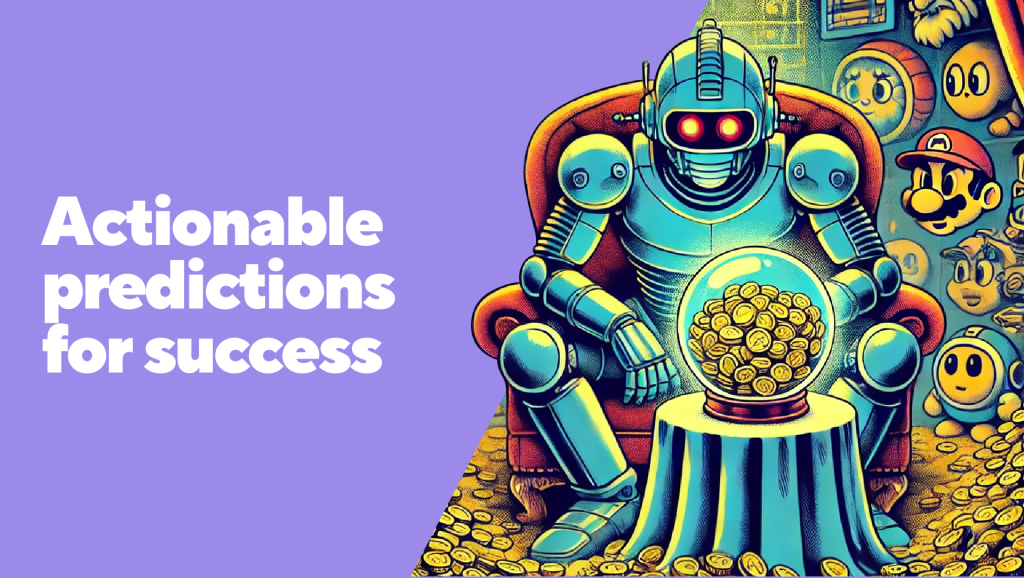What is mobile game / app monteization?
Mobile game / app monetization is the process of testing and developing a profitable business model for a game / app. However, there’s a big difference between games that are maximizing their monetization strategy and games that aren’t.
Typically speaking, regardless of which category a game falls under, there are always areas of monetization improvements within a game.
What is the benefit of mobile game / app monetization
Optimizing your mobile game for monetization allows you to maximize the lifetime value (LTV) of your players. Doing so results in more revenue from existing players, higher rankings in app stores and more revenue to spend on UA.
How has mobile game / app monetization been affected in 2022?
In terms of targeting, the personalization of in-game ads and offers used to be straightforward, that was until Apple’s ATT (App tracking transparency) data policy changes in 2021. What is now referred to as the post-IDFA world sees granular behavioral profiles inaccessible and ad platforms struggling to target the users they were once so easily able to do.
The once powerful IDFA has become near useless and Apple’s SKAN data does have the granularity of information necessary for specific user targeting. Instead, data is now presented from random samples with a level of anonymity and based on average values of segments.
It is worth noting that so far, the impact of Privacy Sandbox on Android has not been as consequential as Apple’s IDFA changes. Partly because Android games typically make up a much smaller percentage of a game’s revenue, but also because the privacy changes to GAID do not seem as harsh as those to IDFA.
Whilst the previous does make it more difficult to maximize game monetization, it doesn’t make the need for good monetization any less important.
Why personalization is so important for mobile game / app monetization
Personalization in the context of mobile gaming, refers to the unique in-game offers tailored to individual users by ML / AI (machine learning / artificial intelligence), probabilistic or business intelligence models. It is the goal of using advanced technologies to tailor in-game monetization to the needs of each individual player.
Due to the fact that every user has their own tastes, preferences, desires, goals and needs, we found a strong correlation between in-game personalization and average revenue per user (ARPU).
Giving every user the same small selection of offers for in-game items of, say, $1.99 makes the items accessible for almost every player. However, the issue is that a game doing this would not be maximizing player LTV because more engaged players would pay far more for things such as rare items.
It has been shown that there are at least five types of player segments playing your game at the same time, and only a small percentage have monetization options tailored exactly to their needs.
Imagine going to the mall and finding that there are only a few styles of boots available, customer satisfaction would be low. Now consider the possibility of millions of players playing the game at the same time with a few types of offers available that are on average performing ok, but aren’t doing anything special for any of these segments. The result would be the same.
So, what is the best way for you to choose which offers to show among the hundreds that your monetization designers have created? New technologies like machine learning can help us select the right offers for every player and keep them fresh.
ML advancements have meant that it’s now possible to generate tens of thousands of offers that can be shown to different players at different times within a game, and thus significantly improve the LTV of the whole playerbase.
An excellent method for placing this in context is to look at Netflix as an example. Every user has different recommendations in their home screen depending on a variety of behavioral factors. This is exactly how a well-monetized mobile game should design its monetization experience – showing the right offer to the right player at the right time.
It is worth mentioning that executing the above is far easier said than done. Deconstructing a game and understanding player LTV potential takes many different skills often spread across multiple teams within a company e.g. Game Designers, Economy Designers, Monetization Designers, Data Analysts, and so on.
Want us to manage your game?
Let us manage your game to greatness for share of uplift, with no upfront cost. Talk to us today if that sounds like a good fit for you
Is ML / AI necessary for monetization?
Machine learning / artificial intelligence typically generates the most uplift out of all the monetization models at around 20-30%. Probabilistic models come in at 10-20% and expert models at around 5-10% uplift.
ML / AI models also:
- Have no negative impact on retention.
- Generate more payers.
- Have the best first-purchase conversion rate.
- Only need 3 months from the start of implementation to see significant revenue impact.
Essentially, whilst ML / AI is not necessary to start with, it will generate the most revenue for your game in the long term.
How SuperScale can help with the monetization of your mobile game
Our Self-publishing services include ML / AI monetization optimization for mobile games. Using the latest in machine learning technology, in-game optimizations can be safely implemented with no negative impact on retention.
How do we do this? By utilizing all available data, ML customizes user-level offers based on payment and gameplay behavior. In order to understand which players are similar in nature and which ones are not, we segment the players along the way.
AI automatically creates offers (sometimes up to as many as 100k offers) and distributes them on a daily basis to players based on the game content (items, currencies, characters and so on) and price targeting. The ML model monitors performance and learns more about the playerbase every day.
How do we know it works? Through rigorous A / B testing. We sample our changes on just 1% of players to measure the performance on a micro level. Once satisfied, these tests can be scaled up to the other 99% of players resulting in safe LTV improvement(s).
In order to get past some of the post-IDFA / GAID data challenges previously mentioned, we integrate with our industry-leading SuperInsight ‘Analyze’ to ensure the data we are reading is both trustworthy and accurate.
For a 15-minute introductory call please click here.





